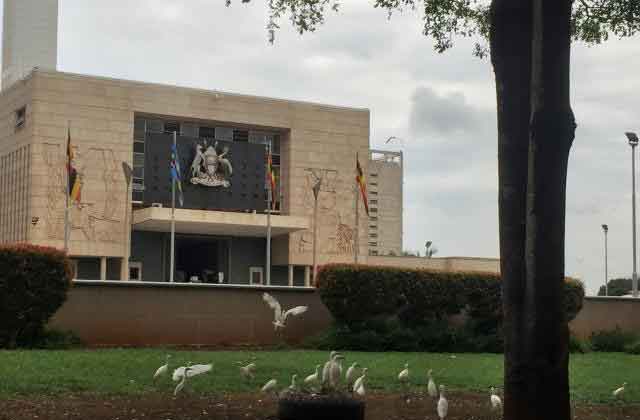
Why the sacred institution has become a resting place for populists elected for their noise-making abilities
COMMENT | MICHAEL WOIRA | In the heart of any functioning democracy lies its parliamentary system, a sacred institution entrusted with the responsibility of shaping the nation’s destiny. However, recent events have painted a grim picture of our parliamentary proceedings, revealing a concerning lack of discipline and decorum among some of our elected representatives. The esteemed title of “Honorable” once associated with these individuals has lost its luster, diminished by the disrespectful behavior witnessed within the hallowed halls of our parliament.
In the past couple of weeks, our parliament has presented a distressing spectacle, marred by a concerning lack of discipline among some of our elected representatives. The term “Honorable” is a title often used for these individuals, but the recent behavior displayed by some members hardly reflects the respect and decorum associated with the title. It’s disheartening to witness their actions, especially when they openly disrespect their colleagues.
A recent incident saw one member verbally attacking and abusing fellow parliamentarians during a public rally within their own constituencies. The level of disrespect exhibited is not only alarming but also indicative of a larger issue within our political landscape. Such behavior, marked by a blatant disregard for civility and a lack of restraint, raises serious questions about the integrity and maturity of these elected officials.
What is particularly troubling is that some of these regrettable actions originate from members of the opposition. While a vibrant opposition is fundamental to a healthy democracy, it should never serve as a pretext for politicians to abandon basic manners, indulge in irrational behavior, or resort to reckless speech. The lack of restraint and decorum among certain opposition members raises concerns about their ability to engage in constructive dialogue, effectively contribute to policy debates, and serve as the responsible voices that their constituents deserve.
Our nation finds itself at a critical juncture, faced with a crisis of leadership that threatens the very essence of our democracy. The actions of these leaders, marked by a blatant disregard for respectful discourse, not only erode public faith in the political system but also establish a dangerous precedent for future generations. The absence of immediate consequences for such behavior reflects a deep-rooted issue that demands urgent attention.
At its core, this crisis underscores the urgent need for our leaders, irrespective of their political affiliations, to acknowledge the profound impact of their actions on our nation. Respectful and responsible conduct should not be seen as optional; it must be an unwavering expectation for anyone holding public office. Our nation is bleeding, not from external threats, but from the divisive and undignified behavior of those entrusted with its governance.
The root of this crisis lies in the flawed criteria we often employ when electing our representatives. Far too frequently, we prioritize familiarity over competence, supporting candidates based on their visibility, social background, or mere noise-making abilities. This approach has led us to elect individuals who lack the necessary skills, dedication, and vision required for effective governance.
Furthermore, the absence of mentorship worsens this problem. Capable parliamentarians, failing to guide the next generation of leaders, prolong a cycle of ineffective governance. While attempts may be made at the leadership level to provide guidance, the reluctance of some members to be mentored, driven by misplaced confidence in their own wisdom, poses a significant challenge.
To break free from this cycle of ineffectiveness, we must undertake a fundamental reevaluation of the standards we expect from our leaders. Merit, integrity, a genuine commitment to public service, and a proven track record of tangible achievements should be the benchmarks against which we measure candidates.
Additionally, there is an urgent need for a cultural shift within our parliament. Members should not just be encouraged but compelled to engage in mentorship programs, where experienced legislators pass down their knowledge and expertise to the newcomers. This transfer of knowledge is indispensable to ensure that the mistakes of the past are not repeated and that our parliament genuinely fulfills its role as the voice of the people.
In conclusion, our nation stands at a crossroads, and the choices we make now will echo through the corridors of power for generations to come. It is a call to action, we urgently need honest and responsible leaders to save our democracy.
By redefining the standards for our elected representatives, investing in mentorship, and promoting a culture of respect and responsibility, we can reclaim the dignity and effectiveness of our parliamentary system. It is not merely a call for change; it is a demand for a brighter, more responsible future for our democracy and our nation as a whole.
As vigilant citizens, we must hold our leaders accountable and demand nothing less than the highest standards of ethical conduct from those who serve us. Only then can we truly restore the soul of our democracy and pave the way for a more just, responsible, and prosperous future for all.
******

Michael Woira is a patriotic Ugandan
 The Independent Uganda: You get the Truth we Pay the Price
The Independent Uganda: You get the Truth we Pay the Price



